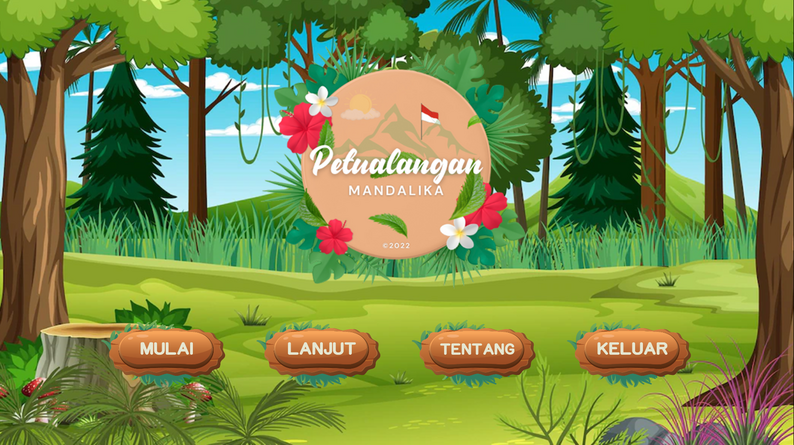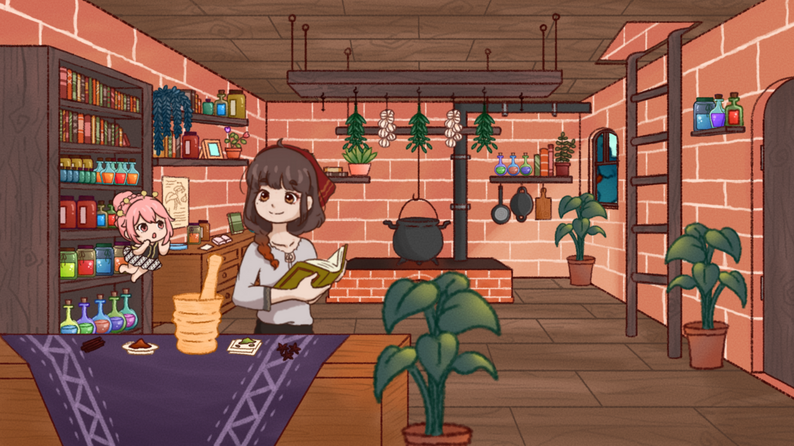Jakarta, 21 March 2022 – Gaming has become one of the most popular technology industries in Indonesia, with sales reaching around one billion dollars in 2021. Building on the rising trend, the Indonesia Cyber Education Institute (ICE Institute) creates a Micro-Credential Game Developer Program (PMGD) – a game development course where students from university partners can gain 20 learning credits through independent study or Merdeka Belajar Kampus Merdeka student exchange program. Together with Microsoft and partner PCMan, ICE Institute runs this program with Azure Lab Services-based platform; enabling students to develop games in the market and take part in increasing the great potential of Indonesia’s game industry.
“PMGD’s goal is to create game development courses using local modules and learning platform. We also want to ensure that the games produced in the students’ capstone projects could be commercialized, hence creating positive impacts for students and increase their learning spirit,” explains Prof. Paulina Pannen, Director of ICE Institute.
“To achieve all that, we need a platform that would not only support online classes, but also be accessible to students who don’t own high-performing devices. That’s why we collaborate with Microsoft whose products are familiar for us, and reputation are already well-known. We also chose PCMan as a partner, who did a great job helping us deploy the ICE Institute platform in 2021,” adds Prof. Paulina.
Using Azure Virtual Lab solution as the main technology behind the PMGD platform, ICE Institute has empowered 672 students from 166 different universities across Indonesia during the first semester of the program opening; a lot more than anticipated. At the end of the program, ICE Institute also works together with experienced game industry players to incubate three games from three categories to increase the commercial values of the students’ creation.
From the entertainment category, the selected game is ‘Deadliner’ made by the ‘Very Good Enof’ team. Consists of 10 students from 7 universities with different majors, this side-scrolling platformer game invites its players to help the game’s main character, which is a final semester student named Dudung, to complete his challenging thesis assignment using a remembering and repeating gameplay. More about this game, click here.

Next, there is ‘Petualangan Mandalika’ (Mandalika Adventure) game from the educational category, which is developed by the ‘Capstone Project Group 49’ team. In this game, 6 students from 6 different universities invite game players to explore tourist attractions in Lombok Island, together with the game characters. During the journey, the game characters will come across a number of environmental pollutions acts that harm the ecosystem, hence players need to take some solutions and give education about environment. More about this game, visit this link.

The last one is ‘Erborista’ from the serious category – a game category that is not only designed for entertainment, but also to provide knowledge and increase the players’ skills. Consists of 8 students from 6 universities within the ‘Capstone Project Group 15’, this 2D simulation game is enriched with light story, gameplay, and minigame. The players will learn how to diagnose patients with the game’s main characters, as well as planting and preparing herbal medicine to cure the game’s villagers. Click here to learn more.

“Using Azure Lab Services, we have successfully transformed participants with no IT background into game developers. We believe that by guiding them properly and providing the right tools, they can access the global digital market,” Prof. Paulina continues.
From the technical side, the use of Azure Virtual Lab solution that is powered with Graphics processing unit (GPU) capabilities and collaboration tools has allowed students from all over the country to work together. The participants located across Indonesia can use basic computers to join the six-month program.
In addition to that, the use of Azure Virtual Lab also provides scalability. Although ICE Institute could not predict how many students will join the program from the beginning, it was easy to scale the virtual lab to accommodate the needs.
“In line with our aspiration to deliver an experience that is wanted and loved by gamers, we develop Microsoft Azure as a cloud platform that fits game developers. Azure is really for them and from them,” said Fiki Setiyono, Azure Business Group Lead Microsoft Indonesia.
“We are humbled to support the development of PMGD with Azure Lab Services. The collaboration and creativity sparked by students from different universities and backgrounds is mesmerizing. Through our collaboration with ICE Institute, we hope to accelerate the growth of gaming industry in Indonesia and support the development of new digital talents, closed Fiki.
###

